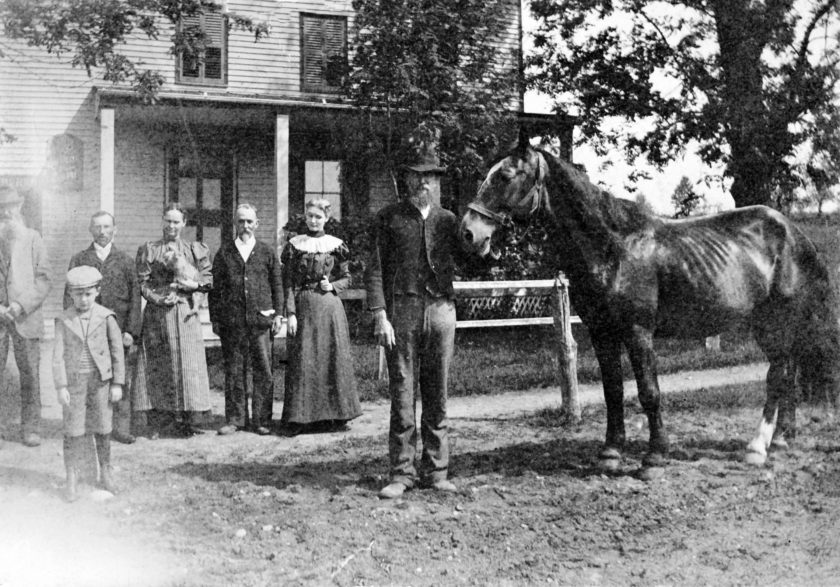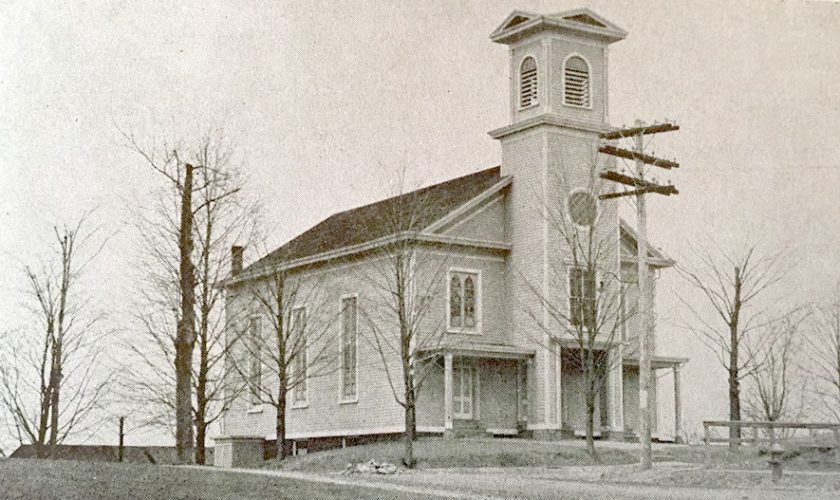
We go back 125 years in the Northern Valley for a story of a jilted woman who turned to the law for vindication. The following article, reprinted in its entirety, appeared in The Brooklyn Standard Union on Sept. 18, 1894—although the strange tale appeared in papers all across America, as far west as Colorado and as far south as Louisiana.
The story opens in the Hackensack court room of Judge Dixon, which was packed by spectators due to all the publicity the case received.
Sues for breach of promise
Mrs. Lena Lawrence wants $10,000 damages
Testimony given by Mrs. Annie Ulrich in the Bergen County Circuit Court at Hackensack, N.J., yesterday, was to the effect that Andrew Eiseman [of Norwood], a widower, held Mrs. Lena Lawrence, a widow, on his lap in the “Old Jug” tavern [in Harrington Park], and declared: “I am going to marry Lena, whether my folks object or not.” Then Lena smoothed Andrew’s gray hairs back from his forehead, put her arms around his neck and kissed him.
The scene, it is alleged, was one of the many similar ones which furnished the foundation for the breach of promise suit of Mrs. Lena Lawrence against Andrew Eiseman, in which the former seeks to obtain $10,000 as compensation for her blighted affections.
Mrs. Lawrence is the widow of a respectable mechanic who died in Brooklyn, leaving her three children, and the reputation of being a fine housekeeper. Subsequently she became housekeeper for Thomas J. Phillips, an insurance man, then doing business for a Brooklyn company, but living at Closter.
Mrs. Lawrence is perhaps 50, with traces of matronly attractiveness enhanced by a halo of silver hair. Somewhere near Christmas they had, it is alleged, agreed to marry. She said Mr. Eiseman was very liberal, and told her to take money enough from his pocketbook to buy a suitable trousseau and defray other expenses. She was economical, and her wedding dress cost about $25.
She had left the Phillips family, which had moved to this city [Brooklyn], and was boarding with Mrs. Annie Ulrich [at Closter], when Andrew came to conduct her to the altar in the Reformed Church.
It was only a short distance from Mrs. Ulrich’s, and in order to avoid undue notoriety, the groom proposed that they walk it. So arm in arm Andrew, 67 years old, and Lena, 50, proceeded up the sidewalk, when Andrew stopped abruptly, and said: “I have changed my mind; I will not be married now. Goodnight.”
Mrs. Annie Ulrich, wife of the village shoe merchant, testified to several tender love passages in the courtship of Lena and Andrew, detailing at length a visit to the “Old Jug” tavern, a country inn famous in Bergen County since the Revolution. Old Mr. Eiseman has several children, who, Mrs. Ulrich says, are opposed to their father’s marriage, because they want his fortune.

Andrew Eiseman, the defendant, is a plain looking German. He has run the village hotel in Norwood for more than a quarter of a century, and is reported to be good for a $10,000 verdict two or three times multiplied. He surprised everybody by making a flat contradiction of the charges sworn to by Mrs. Lawrence and Mrs. Ulrich.
The case will go to the jury today.
The verdict turned out to be just as sensational as the case itself. Newspapers reported on Sept. 19, 1894 that the Widow Lawrence, who had sought $10,000 in damages, had been awarded only 6 cents.
“The defendant alleged that the plaintiff had been too free with other men, but the widow and her witnesses indignantly denied this allegation,” The Middletown, N.Y., Argus reported. “The only basis for the 6 cents verdict seems to have been that the widow was neither young nor fair to look upon.”

